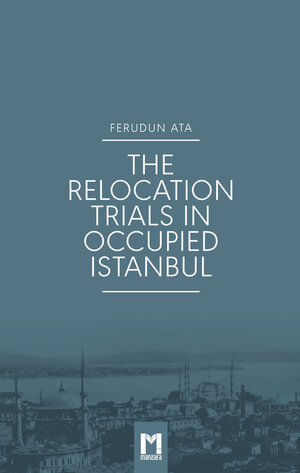The Relocation Trials in Occupied Istanbul
von Ferudun Ata, aus dem Türkischen übersetzt von Patrick Cox, Nicola Jane Hüner und Simden PilonFollowing the defeat of the Ottoman Empire in the First World War, the victorious states occupied Istanbul. As soon as they arrived, the occupational forces, put a lot of pressure on the government following the Mondros Armistice Agreement (30 th October 1918). This was in order to punish the Unionist leaders, ministers, deputies and high ranking state officials for the deportation of Armenians. As the Ottoman authorities had to do everything the victors said as a result of this pressure, a military court was set up and former officials were given harsh punishments, including execution. The new political understanding after the war was that if a passive attitude was adopted and everything the occupational forces wanted was taken care of, then there would be peace and the independence of the country would be protected. After the war, punishments were given by taking advantage of claims that there was an “Armenian massacre”. However, the decisions made in these trials where objective and unbiased norms did not apply, were void. As there was no right to appeal the decisions made in the beginning, some punishments were unfortunately carried out. However, after 23 rd April 1920, when the right to appeal was given, the previously declared death penalty sentences and other verdicts were reversed. As the public were dissatisfied with the fact that in the 1919-1921 Armenian relocation cases it was forbidden to have a lawyer, it was impossible to speak in favour of a defendant, and it was impossible to appeal decisions, a black mark was left in legal history. In this book, the aim has been to present concrete evidence that because of political concerns, an institution responsible for handing out justice openly ignored all matter of rights and justice.






